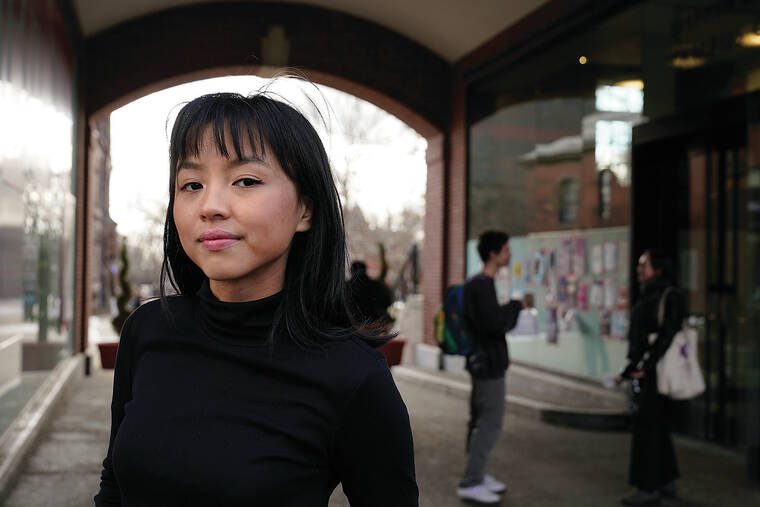From campus to Congress, colleges urged to end legacy boost
America’s elite colleges are facing growing calls to end the decades-old tradition of giving an admissions boost to the children of alumni — a practice that critics say is rooted in racism and bestows an unfair advantage to students who need it least.
Fueled by the national reckoning with racial injustice, opponents say they are gaining momentum in the battle over the contentious policy of legacy preferences.
ADVERTISING
Ivy League students are pressing administrators to abandon the policy. Yale’s student government took a stance against the practice in November. A recent vote of Harvard students found that 60% oppose it. Hundreds of students and alumni across 30 colleges have promised to withhold financial donations over the issue.
Civil rights groups are increasingly adding their support, including the American Civil Liberties Union, which is tackling legacy preferences as part of a campaign against systematic racism.
And a bill in Congress aims to eliminate the practice.
The proposal from Democrats would outlaw preferences for children of alumni or donors at colleges that receive federal money. It’s being pushed by the party’s progressive wing but has gained support from some conservative activists who want college admissions to be based on merit alone.
Legacy preferences give an extra boost to predominantly white and wealthy legacy students, while “leaving out millions of Black and brown kids,” said Rep. Jamaal Bowman, D-N.Y., a sponsor.
“There has been a shift in the consciousness of the country around issues of inequity and inequality,” Bowman said in an interview. “There’s a real yearning to right the wrongs of our past.”
In the heavily guarded world of college admissions, it’s hard to know exactly how many legacy students get a nudge. But at some of the most selective colleges, students with family ties make up 10% to 20% of the latest incoming class, according to data released by colleges in response to an Associated Press request.
On many campuses, the opposition is being led by students of color and those who are the first in their families to attend college.
Zoe Fuad, a junior at Brown University, said it reinforces a “cycle of inequity” that was designed to serve wealthy white men. “By perpetually giving advantages to their descendants, we’re ensuring that those who were systemically favored continue to be favored,” said Fuad, 20, who leads a student group that’s challenging the practice at Brown.
Many prestigious colleges defend legacy admissions, saying it helps build an alumni community and encourages donations. Officials at Harvard and other schools argue that legacy status is just one of many factors considered in admissions, along with grades, test scores and pursuits outside school. At most, they say, it can provide a slight tip in a student’s favor.
Still, two colleges have ended the practice recently.
Amherst College in Massachusetts dropped the policy in October, saying it “inadvertently limits educational opportunity.” Johns Hopkins University announced in 2020 that it had phased out legacy preferences. Since then, the school has drawn growing numbers of Black and Hispanic students, along with those from low-income families.
The pushback against legacy preferences is advancing amid a broader debate over fairness in college admissions.
Last month the Supreme Court agreed to review whether colleges can consider applicants’ race as a way to expand diversity. The court will take up lawsuits alleging that Harvard University and the University of North Carolina discriminate against Asian American applicants in favor of Black and Hispanic students.


